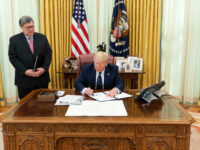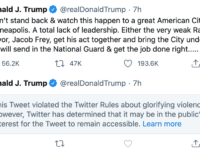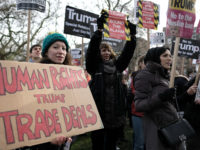TikTok has found itself at the centre of a global geo-political fight between the United States and China. U.S. President Donald Trump, citing privacy, censorship, and national security concerns, first declared his plan to ban the app from the country and later followed up with an Executive Order prohibiting commercial activities with TikTok after a 45 day implementation period. What does the battle over TikTok and other Chinese-owned apps mean for their users and for the future of an open and accessible Internet? Anupam Chander, a law professor at Georgetown University and leading expert on the global regulation of new technologies, joins the podcast to explain the recent developments, unpack the legal issues, and assess the broader geo-political implications.
Post Tagged with: "trump"
The LawBytes Podcast, Episode 54: Eric Goldman on Internet Platform Liability and the Trump Executive Order
The U.S. approach to Internet platform liability has been characterized as the single most important legal protection for free speech on the Internet. Over the past two decades, every major Internet service has turned to the rules to ensure that liability for third party content posted on their sites rests with the poster, not the site or service. Those rules have proven increasingly controversial, however, with mounting calls for the companies to take on greater responsibility for content posted on their sites. The issue captured international attention last month when U.S. President Donald Trump issued an Executive Order that heightens the pressure for change.
Eric Goldman is a Professor of Law at Santa Clara University School of Law in the Silicon Valley where he co-directs the High Tech Law Institute. He has written extensively about Internet liability and appeared before the US Congress to testify on the issue. He joins me on the podcast to discuss the history behind the U.S. approach, its impact, and the implications of the Trump Executive Order.
Why the USMCA Locks in the Internet Platform Liability System in the U.S., Canada and Mexico
U.S. President Donald Trump yesterday signed an executive order targeting Internet platforms after Twitter fact-checked one of his tweets on mail-in voting (the company followed up with a warning on another tweet earlier today involving glorifying violence). The order cannot simply reverse current U.S. law, but it encourages U.S. regulators to rethink how the Internet safe harbour provisions that limit liability for Internet platforms for third party content are implemented.
While the U.S. is obviously free to assess its statutory approach, one issue that received little attention is that the U.S. has effectively locked itself into the safe harbour system through its trade agreement with Canada and Mexico. The inclusion of safe harbour provisions in the agreement were viewed by some as an attempt to force Canada to adopt similar rules, yet the more likely reason for lobbying on the issue was to ensure that the U.S. itself was bound by the rules. Indeed, there were last minute efforts to remove the provision from the final deal, but those were ultimately rejected.
Deciphering the U.S. NAFTA Digital Demands, Part Two: Digital Economy, Services and Transparency
Last week I posted on the leak of the draft notice from the Trump Administration on the NAFTA renegotiation, which identifies at least 40 issues, will serve as the starting point for discussions once talks begin. The post unpacked some of the general language to decipher what the U.S. has in mind on intellectual property issues. This second post examines some of the digital issues that U.S. officials have indicated will form a key part of the updated trade agreement.











